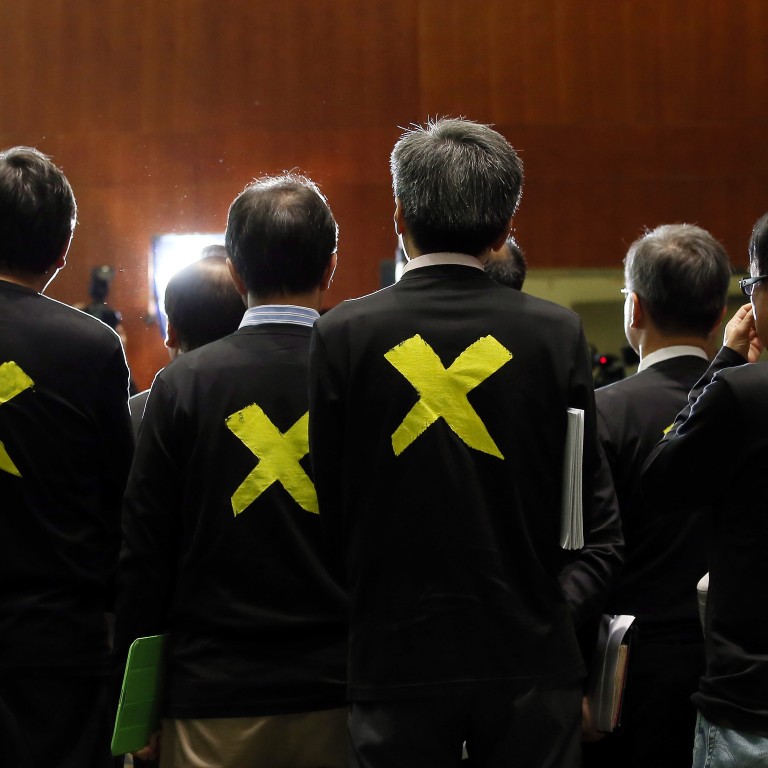
Time for Hong Kong's pan-democrats to see the sense of compromise
Joanne Cheung says die-hard lawmakers must give ground or all of the city will lose
As Chief Secretary Carrie Lam Cheng Yuet-ngor unveiled the government's political reform blueprint, pan-democratic lawmakers staged a walkout, on cue, all donning a black T-shirt with a yellow cross on it to show their uncompromising stance. This hardline approach to showing their disapproval came on top of their "one press conference every three days, one petition every five days" campaign.
And there's a reason the pan-democrats have been digging their heels in, according to the political grapevine: they believe they are doomed whether they approve the proposal or veto it, so they may as well stick with the latter and wait and see.
There are two types of pan-democrat: the extreme and the relatively mild. The former have evolved into a group that locks horns with the government, regardless of the cause, and the political reform proposal is no exception.
The latter, however, tend to tentatively accept the proposal as they reckon there is the potential for Hong Kong's democratic development to take a major step forward.
And that is precisely why the pan-democrats are facing a war at both the front and back: they will be stabbed in the front by radical die-hard supporters if they approve the proposal, or stabbed in the back by the mild centrists if they veto it.
Yet the time seems to have come for those with relatively mild views to speak up and switch their stance, after sitting on the fence for so long. However, even if they do so, it's still anyone's guess whether this faction, plus the weight of public opinion, could defeat the die-hard, extremist forces in the end.
While most of the content of the government's reform blueprint was pretty much as expected, the fact that nomination committee members will be allowed to have more than two votes under a secret ballot mechanism at the final nomination stage will dramatically increase the chances of a pan-democratic candidate, in particular one with a milder political stance, being elected.
But that clearly wasn't enough to appease the pan-democrats, who claimed that the proposed mechanism would only turn voters into "voting machines".
Some pan-democrats still harbour hopes that the central government will make last-minute concessions, like it did in 2010.
According to one political pundit who is close to the central government, however, with grave concerns over national security, Beijing has already put forward its most liberal political reform package for Hong Kong under the framework announced last August 31. Therefore, further concessions must be almost out of the question.
It is, according to the political expert, still the central government's desire for Hong Kong to achieve universal suffrage for the chief executive election, as a realisation of its promise in the Basic law.
However, Beijing will not compromise on the August 31 framework in exchange for the passage of the political reform blueprint.
And so, the pundit had a few words of advice for those in the pan-democratic camp: leave it, and you lose.
While the weight of public opinion is seen as the last hope for the Hong Kong government to win over pan-democrats' support, many people remain uncertain about how much public support for the proposal it would actually take to sway the pan-dems - 60 per cent; 70 per cent; 80 per cent?
One thing is for sure, if a consensus cannot be reached between Beijing and the pan-democrats over the next two months, it's not only the pan-dems who will end up losing out; the whole of Hong Kong will be the biggest losers in the end game of political reform and democratic development.
